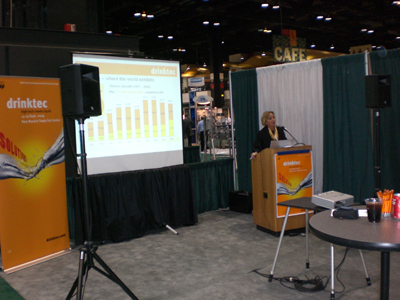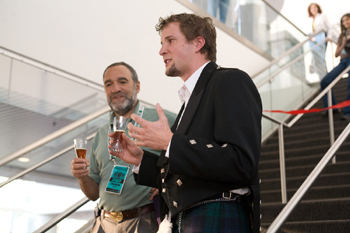The Americas
For those involved in the production, distribution, sale and service of beer, the Siebel Institute of Technology offers an in-depth two-day course.
The Americas
The World Brewing Academy reports that its Web-based Concise Course in Brewing is now formally recognised by the Institute of Brewing and Distilling (IBD) as suitable for students writing the IBD General Certificate in Brewing Exam.
The Americas
SABMiller and Molson Coors took another step toward combining their U.S. beer operations, when they announced before Christmas that they had signed a definitive agreement for the deal, which, nevertheless, still requires regulatory clearance.
The Americas
They like to recruit from among their finest. On 1 July 2008, Muhtar Kent, 56, will succeed Neville Isdell as Chief Executive Officer of the Coca-Cola Company, thus putting an end to speculations who will take Coca-Cola into the next decade.
The Americas
The 2008 Siebel Institute of Technology & World Brewing Academy course catalogue is now available for download in Acrobat PDF form.
The Americas
Constellation Brands, the world’s major wine company, is staking a bigger claim in the more profitable segment of the U.S. wine market by taking over Fortune’s Clos du Bois wine brand to add to its collection of USD 8 to USD 11 bottles of wine.
The Americas
The Boston Beer Company, the brewer of Samuel Adams, posted record third quarter net revenue of USD 84.1 million, an increase of 10.9 percent over the same period last year.
The Americas
drinktec shows its colours in the whole world, also in the USA. End of October, roughly two years before the start of the event, the World Fair for Beverage and Liquid Food Technology presented itself at the Worldwide Food Expo in Chicago. Both trade fairs are joint in a marketing partnership.
The Americas
The 26th GABF saw attendance up 12 percent from 2006.
The Americas
Latin American foods and beverages are delighting Americans, so Miller as well as Anheuser-Busch decided to fabricate their own style of "Mexican-inspired beer beverage". For a taste, grab a Miller Chill or a Budweiser Clamato.



